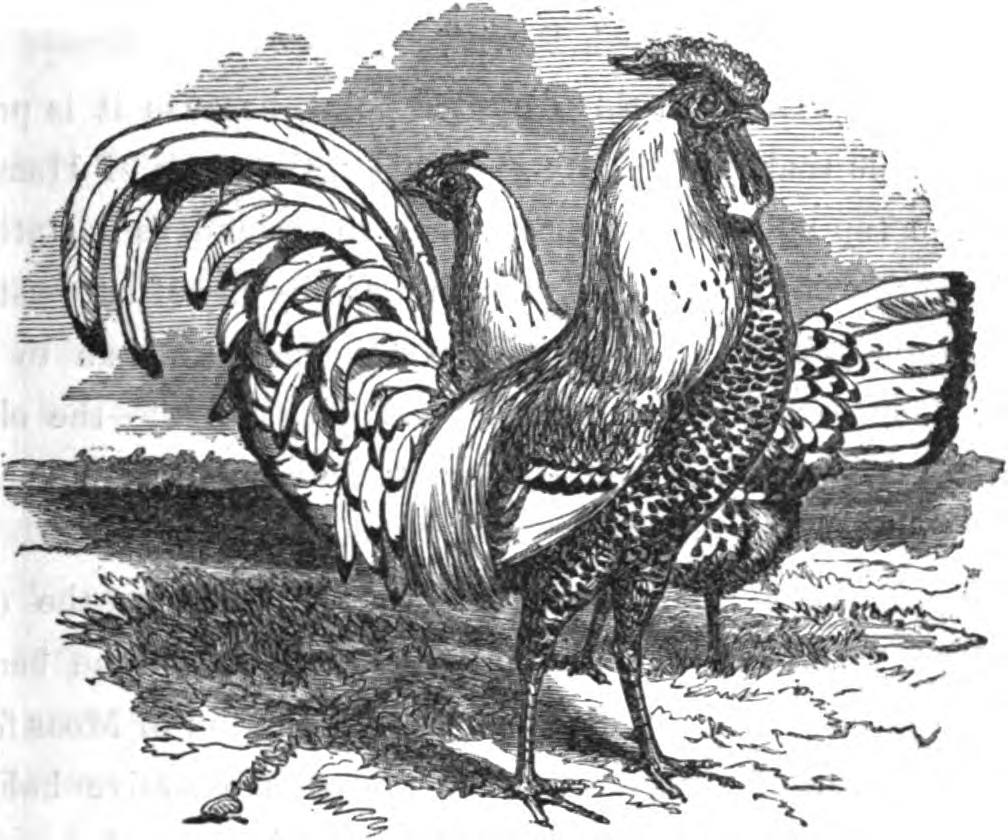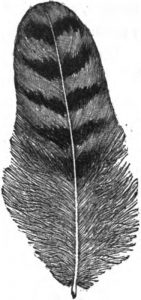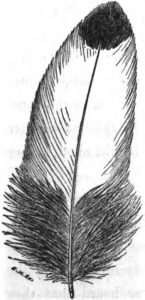With the Hamburgh fowl and some other breeds there are references to both spangled and pencilled feathers. The Poultry Book of 1853 explains what these are and helpfully provides illustrations of both feather markings.
The Poultry Book 1853 has this to say:
Pencilled Feathering on Hamburgh Fowl
The hen displays the peculiar markings which characterize this sub-variety much more distinctly than her lord’; and as the pencilled feather is strictly applicable only to the Hamburgh variety, we may here give a specimen.
The ground-colour must be either clear creamy white or coppery yellow, accordingly as the birds belong to the silver or golden classes, and marked in either with at least four parallel transverse dark bars, as if an artist had worked them in with a black-lead pencil.
…. Spangled feathers, mixed with the pencilled, are very objectionable,– as is also that confusion of colouring or sprinkling of black among the white, which we should suspect first obtained such specimens the designation of the Silver Moss Fowl.
Such, we say, was probably the origin of the term as applied to the Silver Hamburghs, though, as it is well known, the fowl now called the Silver or Golden Moss is certainly the Silver or Golden-spangled Hamburgh, which also bears the synonym of the Silver and Golden Mooney.
Spangled Feathering on Hamburgh Fowl
As the spangled feather is best developed in the Hamburgh varieties, we here give a drawing of one.
We think that the spangle which approaches to a circular form is the most correct, for when of the crescent or horse-shoe shape it appears to be passing towards the laced character.
When the spangle is of the crescent’ form the plumage may have a gayer and lighter aspect (we are speaking of the dark spangled); but when the spangle is circular, or oval, the plumage is richer to the eye.
The ground-colour of the feather must be perfectly clear.




